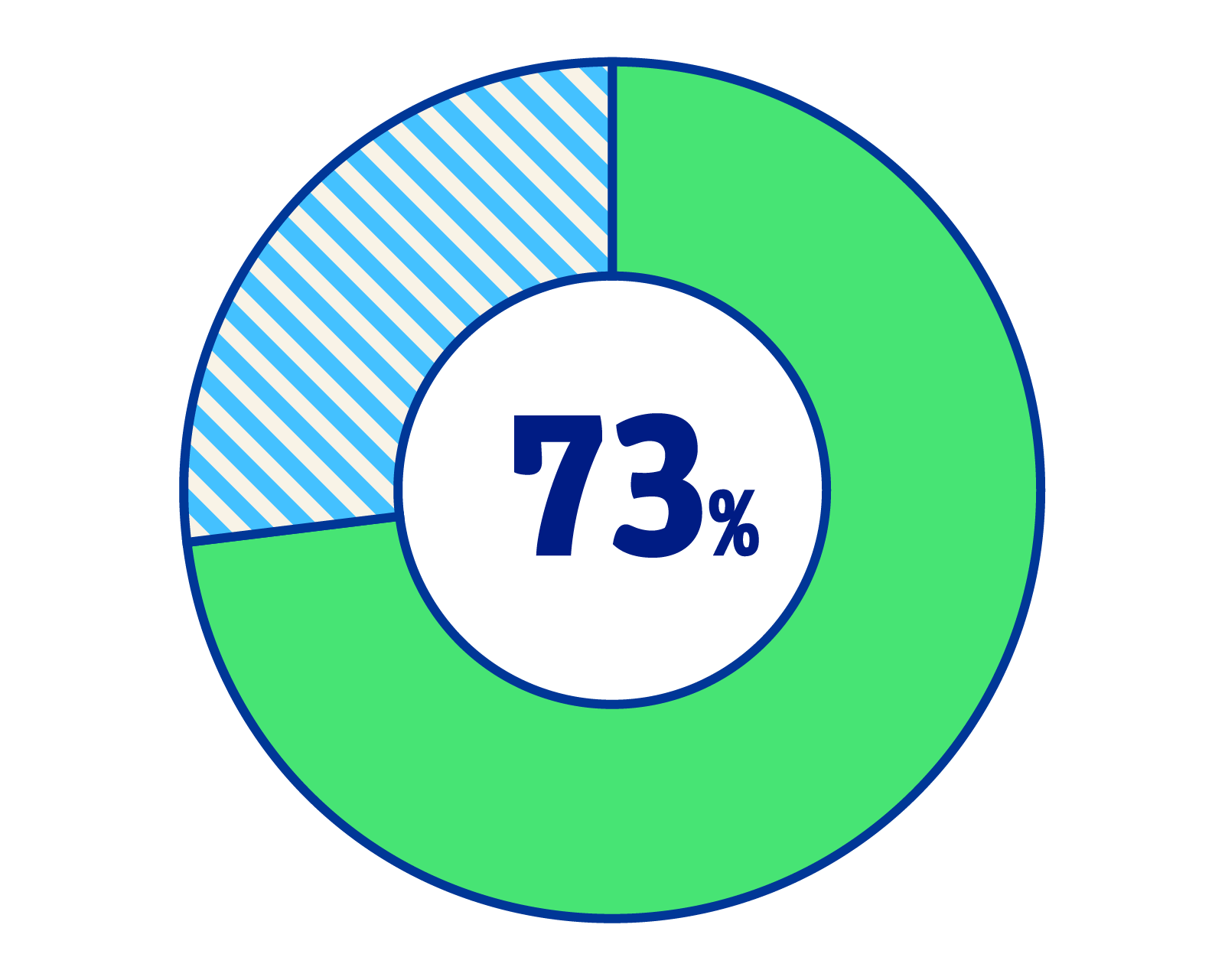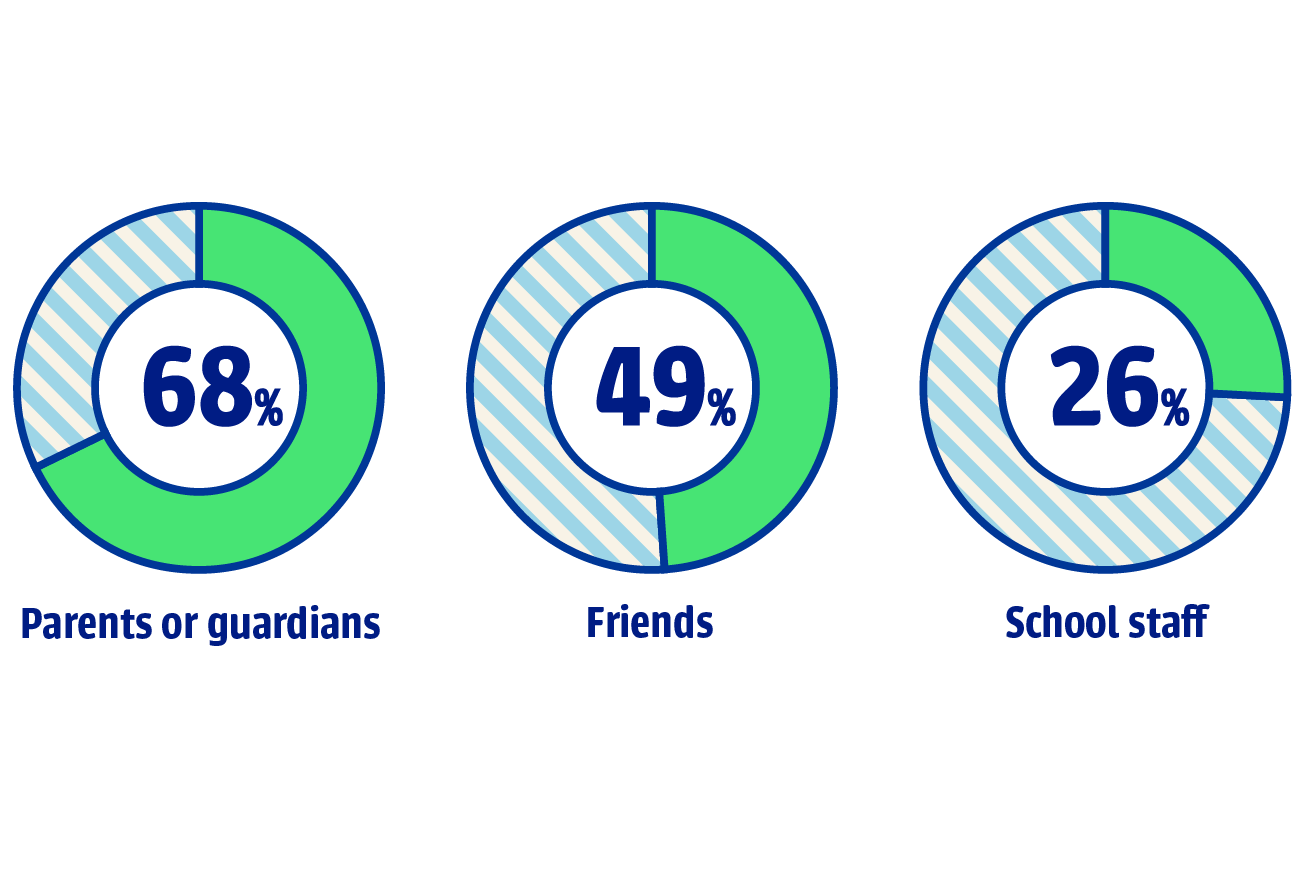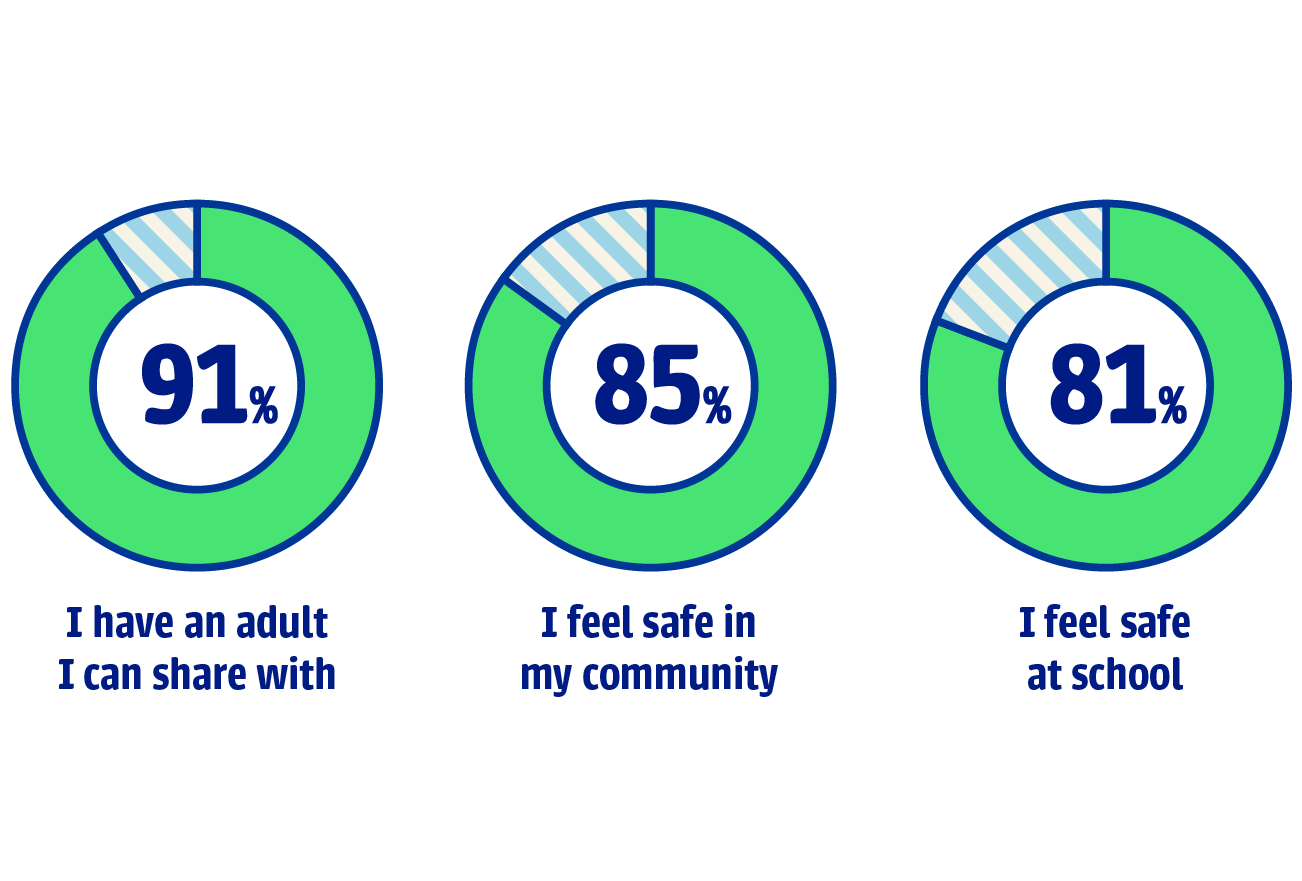
Supporting teen mental health: Stay aware and involved to help them thrive.
Mental health impacts every teen’s success and happiness. Adults play a crucial role by recognizing signs, fostering open communication, and connecting youth with resources—helping to create a supportive environment for healthy growth and resilience.
Empowered adults help youth build brighter, healthier futures together.
Our survey results* help us guide our approach.
In April 2025, students in Meriden Public Schools grades 6–12 participated in the Youth Voices Count Survey* on youth lifestyles, substance use, mental health, related risk and protective factors. THE OVERALL RESPONSE RATE WAS 79%.
When it comes to mental health, teens deal with real challenges. Here’s how you can help them handle it:
 |
Have conversations early & often: Don’t wait for a crisis. Make mental health an everyday topic to normalize it. |
|---|
 |
Address stigma directly: Tell them many people have mental health challenges. Let them know it’s safe to share. |
|---|
 |
Listen first, without trying to fix: Teens prefer adults who listen without judgment and keep things confidential. |
|---|
 |
Model and teach self-care as a family value: Show them healthy coping strategies like exercise, sleep, and activity. |
|---|
 |
Make professional help normal:
Let them know that therapy, counseling, or talking to trusted adults is healthy. |
|---|
 |
Create a safe space at home:
Model that emotions are part of life. Avoid minimizing their struggles or experiences. |
|---|










